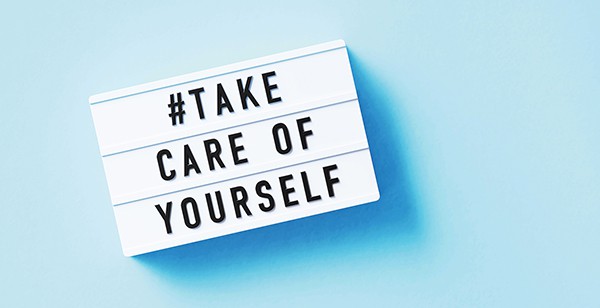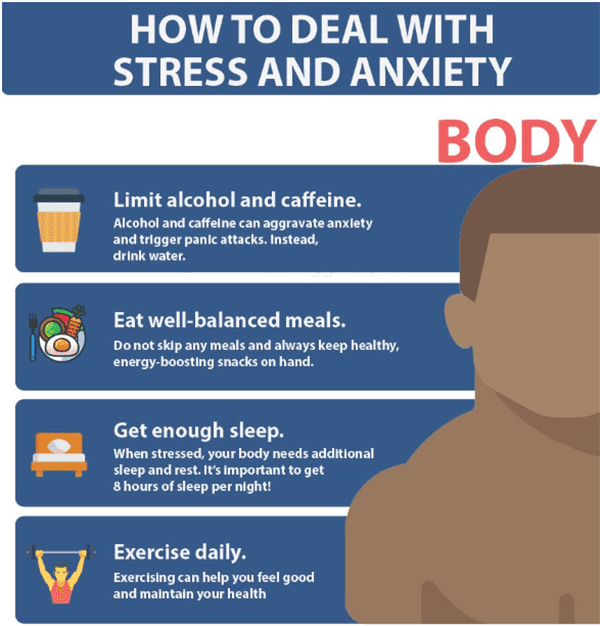Stress Awareness Day: Tips for Managing Stress

What is stress?
Stress is normal, and nearly everyone gets stressed at one point or another. Prolonged stress, however, can create a large mental strain that negatively affects your well-being. Excessive stress can lead to anxiety, depression, and panic attacks as well as physical symptoms such as high blood pressure, weakened immune system, and trouble sleeping. When you are stressed, your body releases a chemical called cortisol that helps to regulate your body’s response to stress. This is what makes you feel that “fight or flight” response. With so many potential side effects, it is important to prioritize preventing and relieving stress.
What causes stress?
There are lots of things that can be stressors in our day-to-day lives including work, financial strain, and interpersonal conflict. For example, searching for a job, managing budgets, and experiencing culture shock or feeling misunderstood by loved ones post-incarceration are all things you may face that can cause you to become stressed out. Stress can happen if you feel that you are under a lot of pressure, are going through big life changes, or feel you do not have control over a particular situation. How stressed you feel and the ways in which you respond to stress may vary greatly depending on the stressor itself. Some people may choose to turn to unhealthy coping mechanisms such as alcohol, violence, or smoking so it is important to be aware of healthy coping responses that are available to you and actively choosing those over unhealthy responses that will only create further harm. If you find yourself turning to alcohol or other substances during stressful times, read some of our tips to stay sober.

Ways to relieve and manage stress
Luckily, there are ways to manage and relieve stress, and how you choose to do so will depend on your personal preferences. Things like exercise, being creative, and spending time outdoors naturally cause our brains to release feel-good chemicals that will help alleviate symptoms of stress. You can even combine multiple stress-relieving activities into one to create the best ritual for yourself. For example, take a walk or run outdoors while listening to your favorite songs. Some other examples to help relieve stress are to call up a friend or family member, try a new hobby (pottery, painting, cooking, yoga, surfing, hiking, etc.) or engage in more introspective activities such as meditation or journaling. Activities that include exercise will boost endorphins, improve your mood, and combat the effects of stress such as poor sleep quality. Activities such as journaling and meditation will help you to sort through your thoughts and provides a space for emotional release without judgement from others. Feel free to try out different stress-reducing activities until you find what works best for you.
It is best to incorporate stress-reducing activities into your day-to-day routine so that you will become more well-equipped to deal with stress as it comes. Even setting aside just 5-10 minutes per day for stress-relieving activities can make a huge difference. Letting stress compound without dealing with it will cause you to be more likely to experience serious symptoms. A steady routine consisting of your hobbies and favorite self-care activities will help tremendously in improving your overall well-being and limit stress in your life. Stress plays a large role in your overall well-being, to learn more about mental health read this article.
Whatever it is you choose to incorporate into your stress-relieving routine, make sure it is something that truly brings you joy. Just because running works for someone else, does not mean that is has to work for you as well. You know yourself best so listen to your body, prioritize yourself, and do the things you love. Managing stress in a healthy way will reward you with a happier healthier life.
For more tips on how to cope with stress, read this article.


